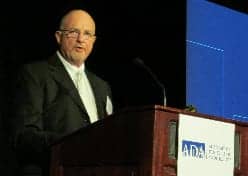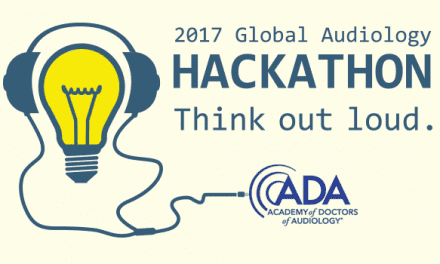On October 22, 2019, the House Ways and Means Committee passed the Medicare Hearing Act of 2019 (H.R. 4618), as amended. The bill, originally introduced by US Representatives Lucy McBath (D-GA) and Debbie Dingell (D-MI), adds new hearing benefits, including hearing aids, for Medicare beneficiaries with severe-to-profound hearing loss.
According to the Academy of Doctors of Audiology (ADA), the American Academy of Audiology (AAA), and the American Speech-Language-Hearing Association (ASHA), the organizations have worked over the past 2 weeks to advocate for improvements to H.R. 4618, to ensure that Medicare beneficiaries have meaningful access to hearing related services provided by audiologists consistent with the Medicare Audiologist Access and Services Act of 2019 (H.R. 4056), the organizations jointly announced. With the help of H.R. 4056 Congressional sponsors and cosponsors and the House Ways and Means Committee, H.R. 4618 was amended to include a number of the provisions in H.R. 4056, according to the announcement, including what many in our field refer to as “direct access” for audiologists.
Specifically, the Medicare Hearing Act of 2019 (H.R. 4618), as amended, enables audiologists to provide both diagnostic and treatment services and reclassifies audiologists as practitioners under Medicare providing better access for seniors. The amended bill also mandates a study to examine beneficiary direct access to audiologists and gives the US Secretary of Health and Human Services authority to allow audiologists to furnish services without requiring beneficiaries to first obtain a physician order. In light of the amendments now included in H.R. 4618, the revised bill was endorsed by ADA, AAA, and ASHA, and now awaits consideration by the full House of Representatives.
In July 2019, ADA, AAA, and ASHA collaborated in the development of the Medicare Audiologist Access and Services Act of 2019 (H.R. 4056). While ADA, AAA, and ASHA are said to be “pleased that the additional key provisions from H.R. 4056 were added to H.R. 4618,” the organizations contend that they will continue their efforts to expand access to hearing health care services provided by audiologists without first obtaining a physician order, “an important provision of H.R. 4056 and its Senate companion (S. 2446),” according to the organizations.
As noted in HR‘s September 10 report about this year’s Medicare Audiologist Access and Services Act, direct access bills generally enjoy strong support from most audiologists, but have encountered controversy even among the major audiology professional associations. Historically, the American Academy of Otolaryngology-Head and Neck Surgery (AAO-HNS) and the International Hearing Society (IHS) generally oppose the legislation, making it more difficult for the it to gain traction in Congress. In 2014, AAA ended up giving the ADA’s 18×18 initiative its support, but also pursued its own Access to Hearing Health Care Act before eventually endorsing the Audiology Patient Choice Act in May 2015. In 2018, the AAA Academy Membership Meeting revealed that the AAA Board of Directors agreed with most facets of the bill, but were wary of its unintended consequences, particularly in relation to the requirements and pros-and-cons surrounding the limited license practitioner (LLP) status accorded by Medicare—the same status accorded to dentists, podiatrists, chiropractors, and optometrists. Effectively, this bill attaches the issue of direct access to Medicare Part B in the provision of hearing aids, making it more likely to encounter opposition than if it were “only” a bill pertaining to Medicare funding for hearing healthcare.
ADA, AAA, and ASHA applauded Representatives Tom Rice (R-SC) and Matt Cartwright (D-PA) for introducing H.R. 4056, as well as House Ways and Means Committee Chairman Richard Neal (D-MA), for their “instrumental work in securing the important accomplishment of reclassifying audiologists as practitioners and allowing audiologists to be reimbursed for the Medicare-covered services that they are licensed to provide.”
For more information, visit:
Academy of Doctors of Audiology at: www.audiologist.org
American Academy of Audiology at: www.audiology.org
American Speech-Language-Hearing Association at: www.asha.org
Source: ADA, AAA, ASHA





